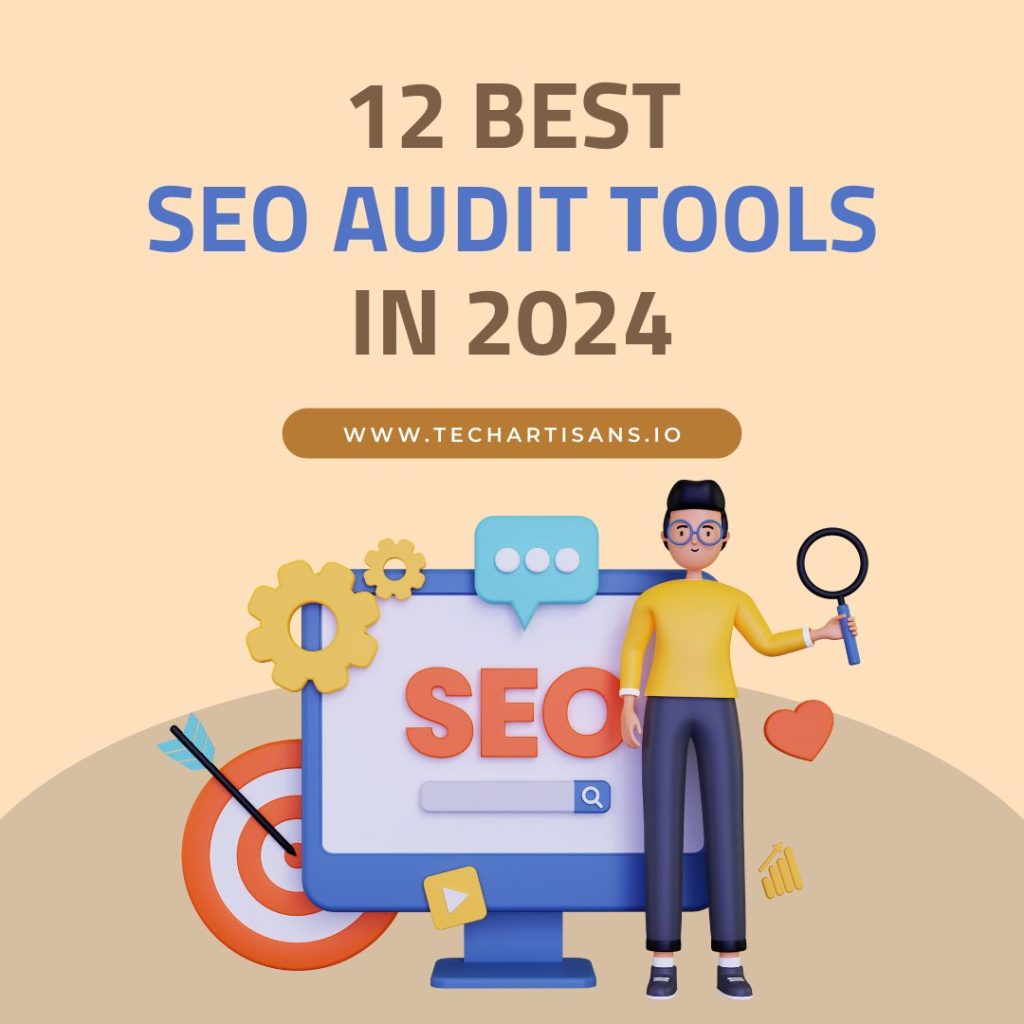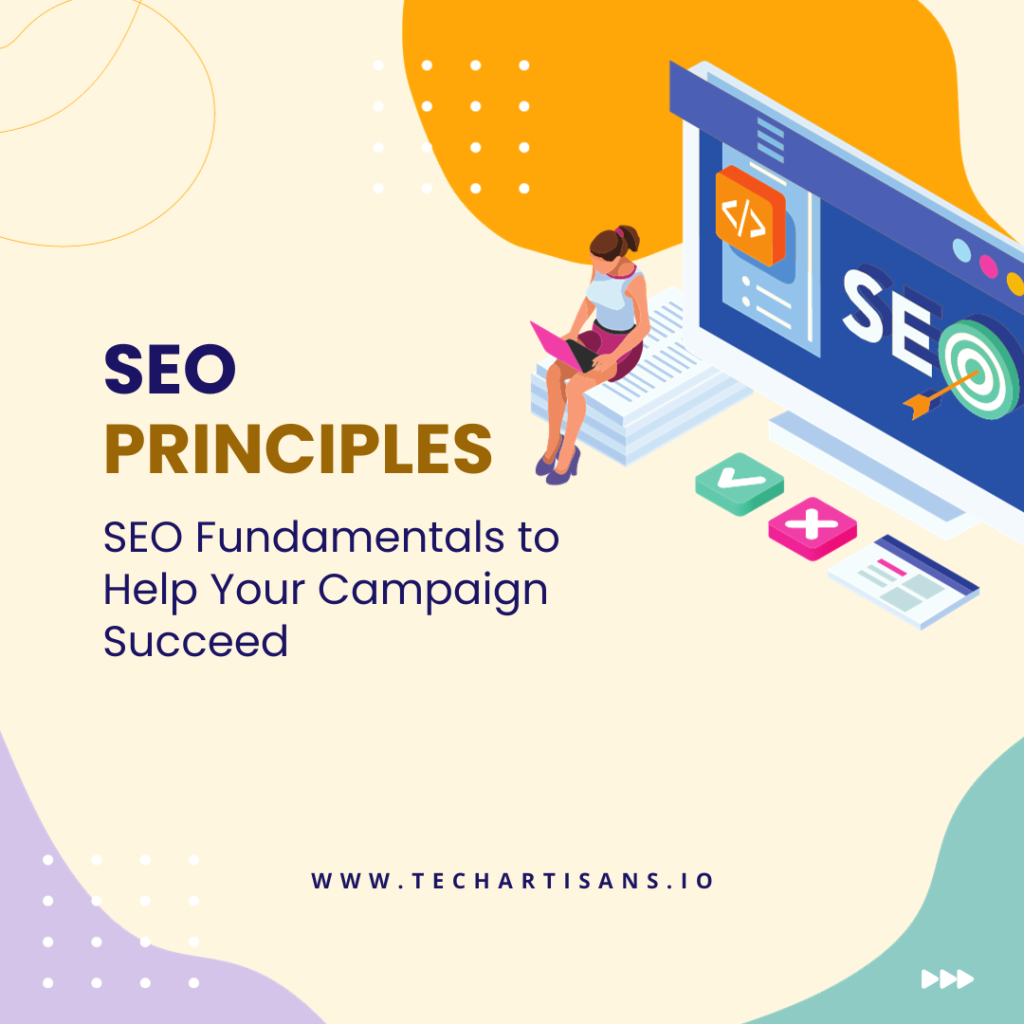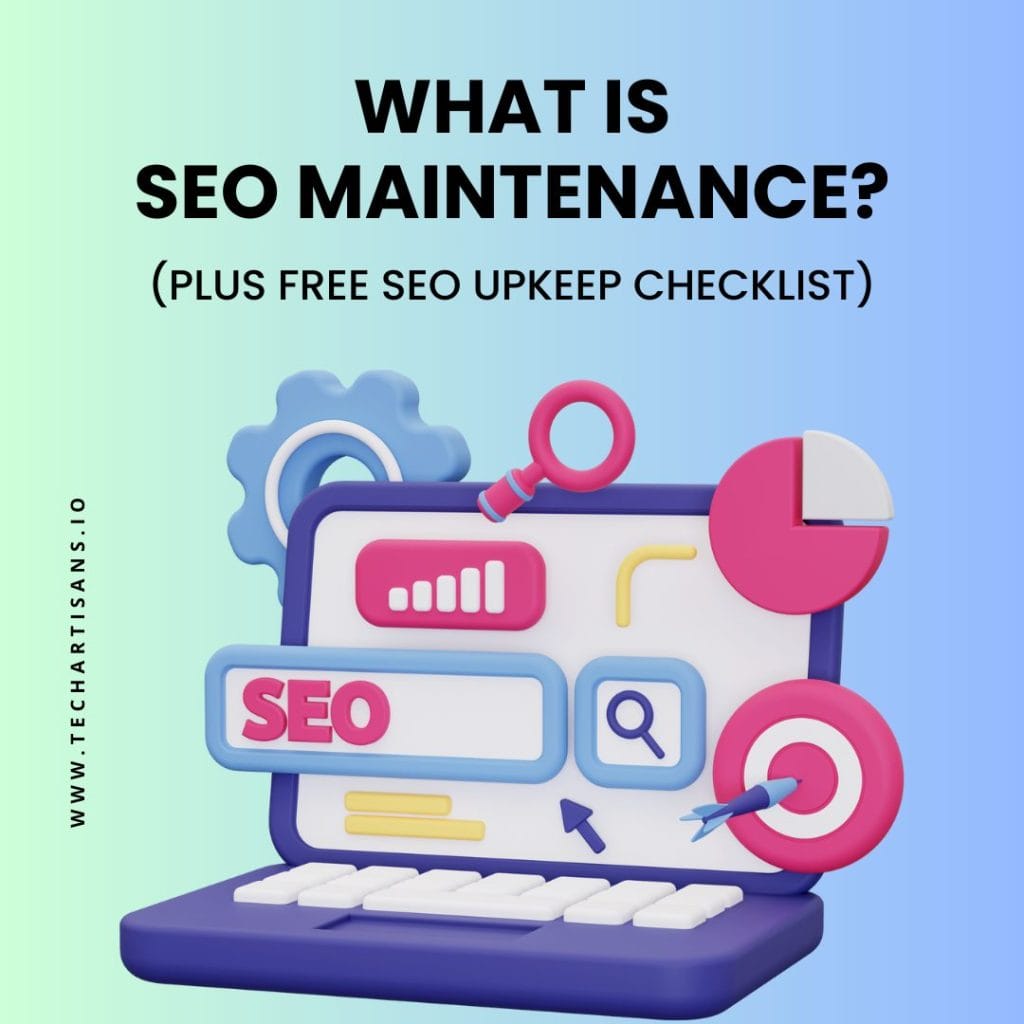In the ever-changing world of digital marketing, staying tuned to the future of SEO is essential for your online visibility. Keeping up with the latest trends maintains your brand’s relevance and competitive advantage. Let’s explore the SEO predictions shaping your online strategies, from intelligent algorithms to user-centric optimization. The future of SEO holds exciting but could reshape the pathway to success for small and medium businesses. So, let’s learn about the future of SEO together!
Importance of Content

Content remains your business information is an accurate and regularly updated component of SEO, and its importance cannot be ignored. How Much Does a Website Cost? to provide readers with insights on the cost implications of maintaining and updating website content. However, the game-changer in the future of SEO will not be just about creating content but about keeping it fresh, updated, and relevant. Let’s delve into why regular content updates are significant for maintaining the SEO health of your website.
1. Relevance of Fresh Content

Refreshing content is not just about staying current; it’s crucial for a better user experience and higher search engine rankings. SEO Principles and Fundamentals for readers interested in understanding the foundational SEO strategies behind content updates. Google prefers sites with up-to-date, high-quality content, so regular updates boost your visibility. Fresh content also maintains your audience’s trust and engagement, while outdated information can harm your brand’s credibility and lead to a decline in traffic.
2. Stagnant Content Ranking Risk

Stagnant content poses a significant ranking risk, causing SEO performance to drop sharply. SEO Testing Guide and Tools to help readers explore tools and methods to evaluate and improve their SEO performance. Search engines favor relevancy, and outdated content can seem less relevant, negatively affecting your website’s visibility and ranking.
Read Mastering SEO: A Step-by-Step Guide and Plan
Shift in Organic Click-Through Rates

Organic click-through rates (CTR) have always been a major player in SEO, but the game is shifting, and the future of SEO requires adapting to this change. Let’s explore how this shift redefines the digital landscape and how your business can adapt.
1. Rise of SERP Features

The rise of SERP features offering direct answers is a vital SEO trend. What is Position Zero (P0) and What Does it Mean for an in-depth look at a critical SERP feature impacting SEO? Google now provides information directly, changing how users use the search engine. Features like Featured Snippets and Knowledge Graphs offer instant answers, reducing organic click-through rates.
2. Implications For Businesses and Organic Traffic

The decline in traditional organic click-through rates had significant consequences for businesses. Benefits of Improving Web Performance to guide businesses on enhancing website performance for better organic reach. It implies adapting SEO strategies to maintain organic traffic. Companies must optimize content for SERP features to enhance visibility, assert their authority in the industry, and ensure a steady flow of organic traffic despite the changing dynamics.
Pervasive Nature of AI in SEO

As we look towards the future of SEO, the role of AI is set to become even more profound, fundamentally reshaping SEO strategies.
1. Growth of AI-generated Content

In the future of SEO, AI-generated content is a significant trend. Free Content Writing Tools for Writing, Editing, Content Creation to provide resources on AI and content creation tools. AI streamlines content creation, making it well-structured and SEO-optimized. While AI handles keyword integration and relevance, human creativity and emotion remain essential. SEO’s future likely involves a blend of AI and human effort for effective strategies.
Google’s AI advancements, including MUM and BERT, redefine SEO. MUM offers insightful responses to complex queries, while BERT enhances result relevancy.
2. Potential of AI in Content Creation

The potential of AI in content creation is immense, offering the capability to produce SEO-optimized content efficiently. What is SEO Management and SEO Strategy to discuss the strategic aspect of SEO in the AI era? AI can predict and integrate relevant keywords and phrases by analyzing user behavior and search patterns, enhancing search visibility. Moreover, AI technologies can comprehend and adapt to ever-evolving search algorithms, maintaining the relevancy and ranking of the content on Search Engine Result Pages (SERPs), thus shaping the future of SEO.
Changes in Google’s SERP Layout & Functionality

Let’s delve into how these transformations influence how businesses strategize their SEO efforts.
1. Google’s Generative AI Search Interface Introduction

Google’s AI-based search interface is a game-changer for SEO’s future. How Progressive Web Apps Work to highlight the intersection of technology and web design in SEO. It uses AI to provide precise, context-aware search results, ensuring a personalized and effective user experience. As Google evolves, businesses must grasp these advanced AI capabilities for the future of SEO.
2. Implications for Organic Search and Businesses

The shift to AI-based search interfaces signifies a more nuanced approach to organic search, where relevancy outweighs mere keyword matching. Small- to medium-sized enterprises must understand and adapt to these changes. A failure to do so could lead to decreased search visibility and, ultimately, a reduction in organic traffic.
Reduced Frequency of Google Crawling and Indexing

As we consider the future of SEO, one critical aspect that poses potential challenges for businesses is the reduced frequency of Google’s crawling and indexing. How to Develop a Healthcare Website in 2023 to emphasize the need for forward-thinking web strategies in light of these changes. This significant change in Google’s approach affects how companies strategize their SEO efforts.
1. Environmental Implications

Crawling and indexing consume significant energy, prompting Google to decrease its frequency for environmental considerations. Consequently, changes in SERPs will occur more slowly, emphasizing the future importance of prioritizing high-quality, enduring content over frequent updates in SEO strategies.
2. Google’s Sustainability Initiatives

Google’s sustainability commitment focuses on eco-friendly crawling and indexing. They use advanced algorithms to prioritize important and updated content, reducing energy consumption. AI enhances efficiency and lessens the environmental impact, shaping the future of SEO strategies.
Continued Importance of Backlinks

Even with evolving SEO trends, one aspect that remains a mainstay in any successful SEO strategy is the power of backlinks. This element demonstrates the importance of establishing high-quality backlinks to improve search engine rankings.
1. Relevance of Link-building Strategies

Link-building remains essential for effective SEO. It boosts credibility and search rankings by gaining backlinks from reputable sites, which shows that your content is valuable and trustworthy. In the future, building relationships with influential websites and bloggers will be key for high-quality backlinks, requiring unique, audience-focused content. Link-building is crucial for SEO success, and businesses should adapt to evolving trends.
2. Blogger Outreach and Personal Branding

In the future of SEO, blogger outreach and personal branding are crucial. Blogger outreach involves connecting with influential bloggers for backlinks and visibility. Personal branding means creating a relatable digital persona to build trust and loyalty, impacting SEO success. Businesses should embrace these strategies in their SEO plans.
Emphasis on E.E.A.T (Expertise, Experience, Authoritativeness, Trustworthiness)

As we delve deeper into the future of SEO, the significance of E.E.A.T — Expertise, Experience, Authoritativeness, and Trustworthiness, emerges as a cornerstone for successful SEO strategies, Why Web Security is Important to underline the trustworthiness aspect in SEO particularly for small to medium-sized businesses.
1. Significance of E.E.A.T in Google’s Ranking Factors

Google’s ranking factors place high importance on E.E.A.T – a measure of a web page’s overall quality and trustworthiness.
Expertise: Expertise refers to the depth of knowledge exhibited in the content. Google favors content created by individuals with formal or practical experience in their respective fields. This emphasizes the need for businesses to showcase their industry expertise in their content.
Experience: Experience in E.E.A.T refers to the practical knowledge and proficiency businesses have gained in their respective fields over time. It is fundamental for companies to communicate this through their content, enhancing their credibility with both audience and search engines.
Authority: Authority is determined by the recognition an author or website receives from others in the same field. Businesses must establish themselves as authority figures in their industry to improve their SEO performance.
Trustworthiness: A site’s reliability is evaluated based on the transparency and honesty of the information provided. This underscores the importance of building a trustworthy digital reputation. Businesses should ensure their content is reliable and their website is secure.
2. YMYL Website Implications

YMYL websites face strict E.E.A.T evaluations as their content affects people’s well-being. They must offer accurate, reliable information from authoritative sources to boost SEO ranking. YMYL businesses should build a strong digital reputation to gain trust, enhance SEO, and drive engagement and conversions.
Mobile SEO

As we navigate the future of SEO, it becomes increasingly clear that optimizing for mobile search is not merely an advantageous move but an absolute necessity for business success.
1. Dominance of Mobile Search
It’s no secret that mobile usage has surpassed desktop in terms of online search queries. Many users now conduct their online activities primarily, if not exclusively, via mobile devices. This shift towards mobile has implications for SEO strategies. Search engines like Google have recognized this trend, introducing mobile-first indexing and prioritizing mobile-friendly websites in search rankings. Websites that need to be optimized for mobile risk lower search engine rankings and provide a poor user experience, which can deter potential visitors and customers.
2. Importance of Optimizing Websites For Mobile Devices

Mobile optimization is crucial for two main reasons. It offers a seamless user experience, boosting engagement and conversions. Also, it directly affects search rankings as Google primarily uses the mobile version for indexing. In the future of SEO, mobile optimization is a must, not an option.
Rise of Voice Search and Conversational AI

As we journey further into the future of SEO, we witness the rise of voice search and conversational AI becoming increasingly prominent. These technologies transform how users interact with search engines and reshape SEO strategies.
1. Increasing Use of Voice-activated Devices

The rise of voice-activated devices like Alexa and Siri is changing how people access online content. Voice search is popular for its convenience, especially among mobile users, and it’s here to stay. Businesses need to adjust their SEO strategies to accommodate this new trend.
2. How Businesses Can Optimize For Voice Search

Optimizing for voice search means using conversational, question-based phrases and long-tail keywords. Local SEO is crucial due to location-specific queries. A fast-loading website is also key for voice search optimization. The SEO future is going viral, and businesses must adapt.
Emphasis on User Experience and Core Web Vitals

Transitioning into the future of SEO, the spotlight is increasingly falling on User Experience (UX) and Core Web Vitals, emphasizing the importance of creating a seamless, engaging, and user-friendly online environment.
1. Google’s Focus: Seamless User Experience

Google’s commitment to user experience is evident in its continuous updates to enhance website smoothness, speed, and usability. A prime example is the introduction of Core Web Vitals, a set of metrics that measures a webpage’s loading speed, interactivity, and visual stability.
The main objective is to provide users with an enjoyable browsing experience by ensuring websites load quickly, respond to interactions promptly, and offer visually stable content. Google’s emphasis on user experience will play a pivotal role in the future of SEO, indicating that businesses should prioritize improving their website’s performance and navigability for optimal SEO outcomes.
2. Core Web Vitals in Website Rankings

Core Web Vitals are Google’s benchmark for a quality web experience, directly impacting website rankings. A poor score can lead to lower rankings on search results, while high scores may improve visibility. The three main metrics – Largest Contentful Paint (LCP), First Input Delay (FID), and Cumulative Layout Shift (CLS) – evaluate load time, responsiveness, and visual stability, respectively.
Growing Importance of Local SEO

As the digital landscape continues to evolve, gaining significant momentum in the future of SEO is Local SEO, which is becoming increasingly crucial for businesses aiming to establish a strong presence in their local markets.
1. Benefits of Local Search

Optimizing for local search has several crucial benefits. Firstly, it allows businesses to target customers in their immediate area, ensuring they reach the audience most likely to avail of their products or services.
Secondly, it boosts visibility on search engine results pages, particularly for location-specific queries. This increased visibility can drive more organic traffic to your website, leading to higher conversion rates.
Lastly, local SEO helps improve online reviews and ratings. In the future of SEO, local optimization will be essential for businesses aiming to thrive in their respective markets.
2. Tips for Businesses to Improve Local SEO

Improving local SEO starts with creating a Google My Business account and ensuring your business information is accurate and regularly updated. This enables companies to appear on Google Maps and local search results.
Next, focus on getting positive reviews. Encourage satisfied customers to leave reviews, as this builds trust and authenticity.
Lastly, optimize your website content and metadata with local keywords. This can help search engines understand your local relevance, boosting your visibility for local searches.
Conclusion
The future of SEO is ever-changing, requiring businesses to adapt and innovate. Recognizing and preparing for these trends ensures competitiveness in the digital landscape, offering challenges and growth opportunities. Embrace the changes, evolve with the trends, and let your business thrive online.







